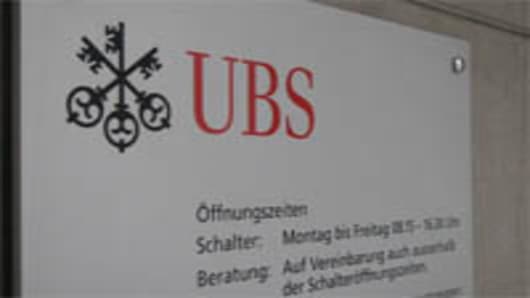When the Swiss bank UBS and federal prosecutors face off in a Florida courtroom on Monday, the focus will be whether UBS must disclose the identities of thousands of its American clients, but much more could be at stake as well.
The dispute, in which the Internal Revenue Service, backed by the Justice Department, is trying to force UBS to hand over the names of 52,000 wealthy American clients suspected of tax evasion, has escalated into a showdown that has frayed relations between Switzerland and the United States, peeled back layers of Swiss banking secrecy and rattled the world’s private banking industry. UBS and the Swiss have intensified their opposition this week, threatening to send more ripples through the global banking system.
Oswald J. Grübel, the chief executive of UBS, sent a memorandum to the bank’s top executives on Thursday saying that turning over the names “would require UBS to violate Swiss criminal law, and we simply cannot comply,” according to a copy of the document.
On Wednesday, the Swiss government said that it would block any move by UBS, Switzerland’s largest bank and a bulwark of the country’s economy, to turn over the names should it be ordered to do so. Such a decision could come as early as Monday by the judge overseeing the case. The country contends that complying with such an order would violate Swiss law.
“If necessary, the blocking order is ready,” Urs Ziswiler, the Swiss ambassador to the United States, said in an interview in New York on Wednesday.
Any such order could imperil the ability of UBS, the world’s largest private bank and a big player in the global credit markets, to operate, as well as potentially subject executives to criminal prosecution, and the bank to sanctions, in Switzerland.
“The I.R.S. summons puts UBS in an untenable position, caught between the laws of two sovereign nations,” UBS said in a statement on Thursday. “Honoring the I.R.S. summons would require UBS to violate Swiss criminal law.”
Further heightening the tension, the judge overseeing the case, Alan S. Gold of Federal District Court in Miami, has ordered prosecutors and the I.R.S. to consult the Obama administration and the State Department and to explain by Sunday how far the government is willing to go if UBS refuses to disclose the names. The judge wants to know whether it would consider seizing assets of UBS in the United States or force it into receivership, a form of bankruptcy with a court-appointed trustee.
Charles Miller, a Justice Department spokesman, declined to comment on Thursday. In February, the I.R.S. sued UBS to compel it to turn over the names, just a day after UBS agreed to pay $780 million to settle criminal accusations that it had defrauded the I.R.S. by allowing wealthy Americans to hide billions of dollars in taxes in secret offshore bank accounts. The bank admitted to wrongdoing.
Since then, the controversy has threatened to lift the veil of Swiss banking secrecy, which has driven a vast wealth-preservation industry that over decades has made Switzerland the world’s largest repository of hidden wealth.
UBS turned over about 250 client names as part of its settlement but has pushed hard to have the civil names case dropped. While the bank has legal avenues to challenge any ruling by Judge Gold, exhausting those options and still refusing to divulge the 52,000 names could subject it to indictment.
The showdown has prompted Swiss ministers and officials to conduct an lobbying campaign in recent weeks in the corridors of the Treasury Department, the Federal Reserve and K Street lobbying firms in Washington.
As part of the campaign, Swiss officials have raised the specter of global financial instability should the civil case continue to be litigated, rather than settled, either before or after the hearing on Monday. Last month, a United States official briefed on the matter said that the Justice Department was considering a settlement.
“It’s ongoing negotiations, and we’re not talking about it,” Mr. Ziswiler, the Swiss ambassador, said. Referring to the 52,000 names, he added: “It’s just a number. We don’t know how many people have actually declared their income correctly.”
Both Mr. Ziswiler and a UBS spokeswoman, Karina Byrne, said that UBS was not willing to pay a fine to settle the names case in addition to the $780 million settlement. Ms. Byrne added that a plan by UBS to raise $3.5 billion in capital, announced on June 25, had no connection to the names case and would not be used to settle it out of court.
Referring to a possible settlement, the Swiss minister for economic affairs, Doris Leuthard, who is also vice president, said on Wednesday in an interview in New York that the longer the case lasts, “the bigger the chance that UBS is suffering,” adding “financial instability could be threatened. A big bank with a severe problem will hurt the stability of the financial markets and the global economy, and this is one element that should be considered.”
The case has taken its toll on UBS, whose core businesses also include investment and corporate banking. James Odell, general counsel for UBS’s investment bank in the Americas, said Wednesday in a brief interview that “it’s an overhang that’s best to get rid of.”


